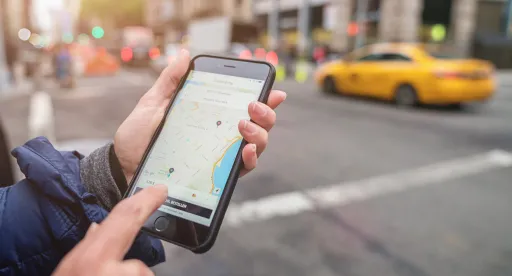You’re meeting friends for dinner and without a second thought pull up your ridesharing app (such as Uber or Lyft). To save a few dollars, you opt for the company’s shared ride service. The company offers this cost-saving option to allow multiple passengers – who do not know each other – to share rides.
The car pulls up as scheduled and you get in. The other passenger looks at you intently and ignores your attempt at conversation. Then, at a stop light, he pulls out a gun and robs you. When you resist, he pistol whips you repeatedly. Now you’re dazed and bleeding, your cell phone and wallet are gone and you’re left wondering what to do.
Sound farfetched?
A Chicago woman recently filed a lawsuit claiming that a fellow passenger in a shared ride suddenly started stabbing her in the face with a knife for no reason, leaving her with lacerations that are likely to cause permanent scarring.
The argument is that ridesharing companies (such as Uber or Lyft) are not doing enough to ensure the safety of riders, although they are in the best position to ensure that both drivers and passengers are “safe people.” Riders using a shared service have no way to check each other’s backgrounds. Ridesharing companies perform background checks on drivers to help ensure riders’ safety. But, what about the other passengers who share your ride? Currently, all customers are required to provide to create a ridesharing account is a valid email address, phone number, and credit card.
The lawsuit asserts that the ridesharing company has a duty to protect customers using its service. The lawsuit claims that the ridesharing company should have known that passengers may become violent and should have provided warnings to its customers. Further, ridesharing companies should provide training to teach drivers how to deal with situations where a passenger becomes violent.
The complaint asserts multiple claims, including that the ridesharing company “carelessly and negligently:”
- Failed to have any policy or procedure for protecting customers in its vehicles.
- Failed to warn the plaintiff of the potential dangers of riding in its vehicles.
- Failed to teach, train, or instruct drivers how to prevent or respond to physical altercations between passengers in its vehicles.
The victim sued both the ridesharing company and the alleged attacker. The ridesharing company’s insurance carrier denied coverage for the victim, asserting that the incident was not accidental.
Ridesharing has become an everyday reality for many people. As with other innovative business models, the practical and legal implications of policies and procedures may come to light after the service is implemented. Ridesharing companies are often in the news, as the public, other businesses, drivers, and municipalities express concerns about various issues as they arise, including safety, competition, regulation, and employment disputes, to name a few.



 />i
/>i
